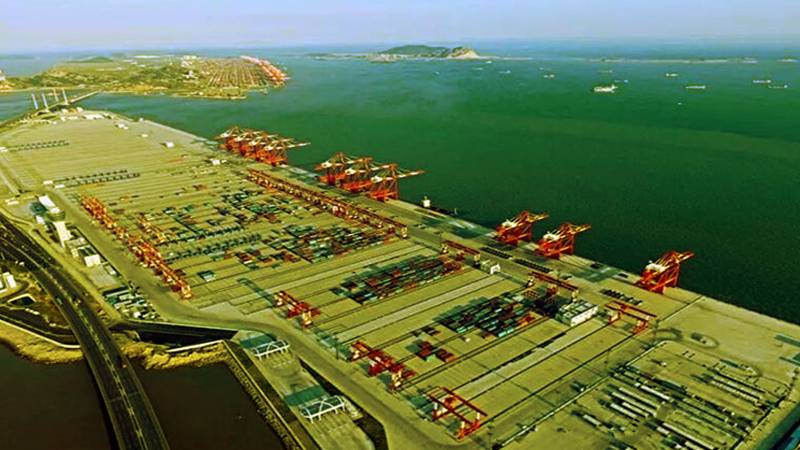
A new chapter in Pakistan's economic and geopolitical history is being ushered in by the China-Pakistan Economic Corridor (CPEC). As the centerpiece of China's Belt and Road Initiative (BRI), the China-Pakistan Economic Corridor (CPEC) is a comprehensive framework designed to improve Pakistan's industrial, energy, and infrastructural sectors. It is not merely a bilateral initiative. With estimated expenses reaching $60 billion, the corridor—which stretches around 3,000 kilometers from Gwadar Port to Kashgar in China's Xinjiang region—represents a substantial investment. Improving connectivity and economic integration between the two countries is its main objective, and it also aims to provide new opportunities for regional collaboration.
The construction of Gwadar Port, which is intended to become a major marine hub, is at the core of the CPEC. China now has a vital gateway to the Arabian Sea through this deep-sea port, avoiding the more crowded but historic marine routes. Gwadar is essential to Pakistan's efforts to establish itself as a hub for regional trade. In order to stimulate economic activity and draw in foreign investment, the port has developed by building state-of-the-art facilities, an international airport, and free trade zones.
A key component of CPEC is its energy projects, which solve Pakistan's ongoing energy problems. The goal of CPEC is to expand Pakistan's national grid by thousands of megawatts through investments in wind, solar, hydro, and coal power. Improvements to the energy infrastructure are essential to sustain industrial growth and guarantee an ongoing source of electricity, which has historically been a major impediment to economic progress.
The vast network of roads, highways, and railways that are being built is another essential component of the China-Pakistan Economic Corridor (CPEC). This infrastructure development aims to make it easier and faster for people and goods to move across the nation; major projects like the Karakoram Highway upgrade and the Lahore-Karachi Motorway will save a lot of money and time by reducing travel time.
The establishment of Special Economic Zones (SEZs) throughout Pakistan is another goal of CPEC. These Special Economic Zones (SEZs) offer advantages including tax breaks, simplified regulations, and first-rate infrastructure in an effort to draw in foreign direct investment. Their objective is to enhance exports, foster industry, and generate employment in order to strengthen Pakistan's economic core.
Even with its apparent advantages, CPEC has a number of difficulties. Project implementation is risky due to security issues, especially in areas like Khyber Pakhtunkhwa and Balochistan. Concerns about a potential debt trap have also been raised regarding the financial viability of loans associated with the China-Pakistan Economic Corridor (CPEC). Large-scale infrastructure projects have the potential to upset local ecosystems and communities; thus, there are additional environmental and social effects to take into account.
To sum up, the China-Pakistan Economic Corridor (CPEC) offers Pakistan a huge chance to upgrade its infrastructure, ensure its energy security, and improve its economic outlook. Additionally, it might promote regional integration and cooperation by providing Central Asian nations with a new trading route to the world's markets. Even so, attaining these advantages calls for attentive handling of the related difficulties. CPEC represents a major turning point in Pakistan's development trajectory and a ray of hope for regional connectivity and economic growth as the nation navigates this revolutionary path.
Beyond a collection of infrastructure projects, the China-Pakistan Economic Corridor (CPEC) is a comprehensive development strategy that aims to drastically alter Pakistan's socioeconomic conditions. The benefits of CPEC are numerous and varied, ranging from promoting industrial growth and technical innovation to updating infrastructure and guaranteeing energy security. Pakistan is establishing itself as a major participant in the regional and international economies as it advances under the CPEC's auspices, heralding in a new era of prosperity and growth.

